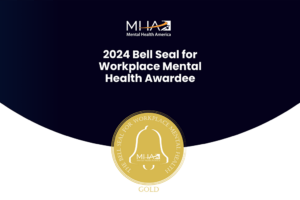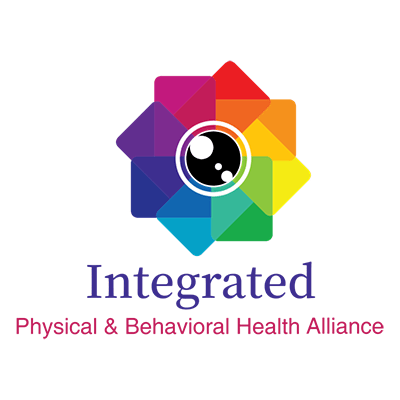Editor’s Note: This month’s feature written by Dr.Cara English, DBH, was written in response to the recent article that follows. Reading this first will undoubtedly provide some context and insight. Thank you.
Dembosky, A. (2018, March 19). Docs Worry There’s ‘Nowhere To Send’ New And Expectant Moms With Depression. Retrieved March 19, 2018.
To screen or not to screen is the wrong question.
Why we should be asking, “What do obstetric providers need to feel comfortable screening?”
By Cara English, DBH
When I was under intense stress and pressure during my doctoral program, I experienced heart palpitations. As a behavioral health provider, I knew that my history of anxiety and the stress I was enduring were likely resulting in this new physical symptom, but just in case, I made an appointment to see my PCP of ten years, who had worked with me for anxiety. When I saw her, I said, “I think this may just be anxiety. What do you think?” She referred me to a cardiologist and did not ask about my stress. An EKG quickly ruled out cardio pathophysiology, and the treating cardiologist asked me when I had experienced the symptoms. My symptoms began while I was driving home from my 2nd job and thinking about all of the homework I needed to complete while simultaneously feeling guilty about the time I wouldn’t be spending with my young son that night. The cardiologist smiled and said, “You’d be surprised how many women I see with similar symptoms.”
The doctoral program I was enrolled in at this time was in integrated behavioral health – bridging the gap between body and mind in medical practice by embedding trained behavioral health providers in traditionally body-focused medical care. I knew that patients got better faster, experienced fewer medical errors, drug interactions, unnecessary procedures and surgeries, and reported better experiences when behavioral health was part of their care. I knew that because of the better patient experience and outcomes, medical providers too had an improved quality of life – their jobs were more fulfilling. They got to do the work they were trained to do and hand off the care they weren’t trained on – mental health – to a trained expert on their team and in their office. Cost-effectiveness of primary care behavioral health integration has been well-documented. I knew all of this when the PCP didn’t ask about my stress. I knew all of this when the cardiologist told me that a significant percentage of the female patients he saw had untreated or undiagnosed anxiety, manifesting in physical symptoms.
Why didn’t they know these things? And more importantly, why, in women’s health, where the lifetime prevalence of depression is 1.5-2.5 times the rate in men and the lifetime prevalence of anxiety disorders are even more common (36.4%) than depression (24.9%), WHY isn’t the system of caredoing anything about what we know about these things?
Fast-forward seven years. I’m now a practicing Doctor of Behavioral Health (DBH), specializing in women’s health and perinatal care, also known as maternal mental health. Additionally, I serve as the CEO of theCummings Graduate Institute for Behavioral Health Studies (CGI) and Director of its Doctor of Behavioral Health degree program. In 2017, I co-founded aMaternal Mental Health practice to fill the gap in mental health services for perinatal women and their loved ones. I teach my students about how to better care for women in primary and specialty medical settings, and speak at conferences on this topic to rooms of providers who serve diverse populations of women in different states, countries, and tribal communities. Despite the growing body of evidence for the benefits of integrated behavioral health and the well-documented gender disparities in mental health, the implementation rate of the integrated care model is miniscule in women’s health, particularly in the perinatal specialty.
Providers debate whether or not to screen birthing women for postpartum depression, citing difficulty identifying a mental health provider for patients who screen positive and little to no financial incentive to screen due to poor insurance reimbursement for this practice. In the US, 78% of women who screen positive for postpartum depression do not receive mental health treatment. Many patients cite problems with insurance coverage or time off from work to go to mental health visits. Some patients who ask for help are instead treated as criminals by uneducated providers who cite standard of care protocols forcontacting the police on mothers who ask for help from their women’s health providers for postpartum depression and anxiety.
Integrated care resolves these issues. I deliver mental health care services in a birth and women’s primary care center, where I consult with OBGYNs, certified nurse midwives, birth assistants, and patients that screen positive for perinatal mood and anxiety disorders. There is no additional cost to screen our patients; the screening instruments (Edinburgh,ACEs, GAD-7, PHQ-9, and MDQ) are available in the public domain, are completed by patients at regular intervals during primary care, prenatal, and postpartum visits, and take less than 3 minutes to score and interpret. I’m on hand to consult with patients immediately, via telehealth, or by appointment when screens are positive. Outcomes indicate that the majority of patients’ mental health complaints are resolved in 6-12 sessions, depending on ACE score and social support. I find it difficult to imagine why women’s health providers – and all health providers – are not trained in this model in medical schools, as the evidence for its effectiveness is now considered common knowledge.
The idea that legislation is required to get providers to include behavioral health in medical care, or to screen for the most common complication of childbirth seems like a pretty good indicator that our healthcare system has gone so far away from its mission and purpose that there is likely no saving it. The concept that providers or patients don’t know where to find mental health services is understandable, but not excusable. Why is it standard care for my primary care provider to refer me to one specialist but not another? Why would my primary care provider take the time to build referral relationships with numerous specialty providers, i.e., a chiropractor, a dermatologist, a cardiologist, an ENT specialist, an allergist, an emergency care center, but not a mental health or psychiatric specialist?
2020 Mom is an advocacy organization that promotes evidence-based training in maternal mental health and maternal safety. Their response to the “to screen or not to screen” question is simple: “It’s the Wrong Question. We should be asking, “What do obstetric providers need to feel comfortable screening?” AB 2193 is a bill 2020 Mom is supporting in California, which would provide support for OBs through insurance companies, including a development of case management infrastructure, that would connect patients to qualified, in-network mental health care and provide teleconsults with reproductive psychiatrists. This bill is similar to those passed in other states to make screening mandatory, including Massachusetts and Illinois, where major gains for women’s health have been achieved due to this advocacy.
While I fully support this legislation, it falls short of filling the true gaps for women in healthcare, by failing to fully integrate behavioral health into primary and specialty care. As a carve-out, mental health will continue to carry the stigma, shame, and selfish self-care image instead of earning a place in health care where it belongs. The US healthcare system will continue to be the most costly in the world, and patients will continue to suffer needlessly because we accept inertia rather than demand change.
As a DBH, I was trained to find a need in healthcare and fill it with a disruptive, innovative solution that improves patient health outcomes and reduces costs by providing effective, efficient, and evidence-based care. It’s a degree and mindset that stands out from the scores of traditional training and education earned by the majority of medical and mental health providers in the US, as DBH’s are not restricted to silos of care. We see the whole patient, whole family, whole population, and whole system. DBH’s seek to do what it takes to make things better. We build relationships that result in more effective and efficient care, communication, coordination, cultural sensitivity, and cost savings – the 5 C’s of integration.
It’s time for DBH’s to advocate for legislation that truly shores up gaps in training, funding, and accountability for integration and replaces the variability in the system with standardized care resulting in better outcomes. Will you join me? Tweet your thoughts to@CGIBHS. Let’s make this conversation visible and advocate for change.
Editor’s Note: This month’s feature written by Dr.Cara English, DBH, was written in response to the recent article that follows. Reading this first will undoubtedly provide some context and insight. Thank you.
Dembosky, A. (2018, March 19). Docs Worry There’s ‘Nowhere To Send’ New And Expectant Moms With Depression. Retrieved March 19, 2018.





























